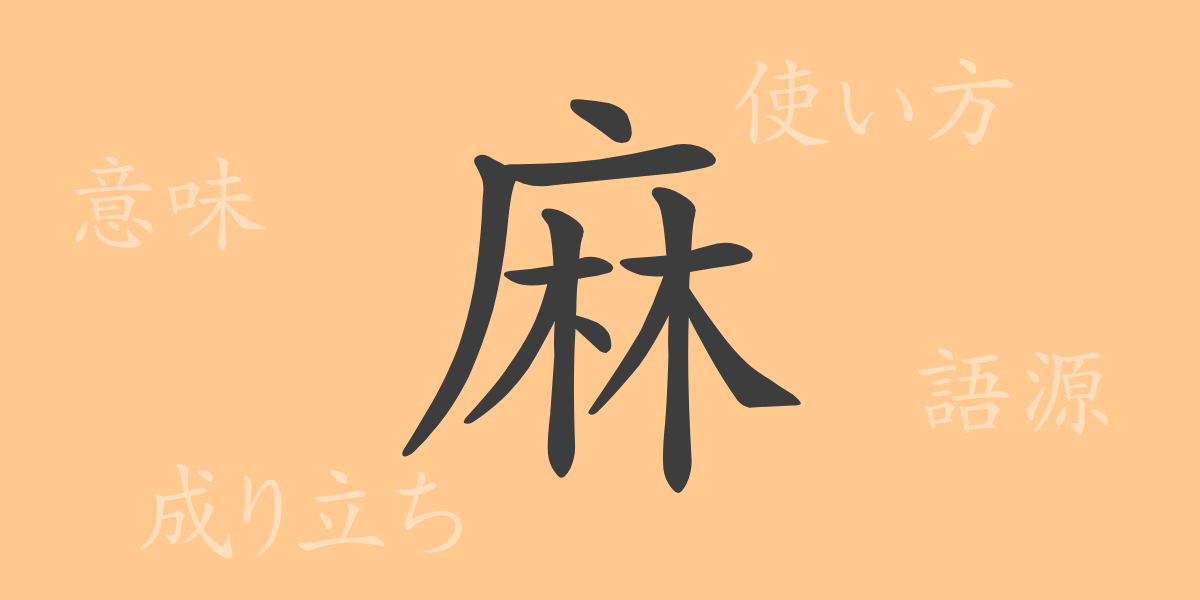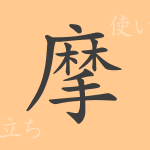From ancient times, the kanji “麻” (ma) has been closely intertwined with people’s lives, boasting a diverse culture and history. The depth of meaning held by this single character and its history of use in Japan have many intriguing backgrounds that are unknown to many. In this article, we will delve into the origins, meanings, usages, readings, and idioms of the commonly used kanji “麻” (ma), exploring its charm in detail.
The Origin (Etymology) of 麻 (ma)
The character “麻” (ma) originated in ancient China and was used to represent the hemp plant. The original form was a pictograph depicting layers of hemp leaves, evoking images of harvesting and processing into textiles. Over time, the shape of the character evolved into its current form, but its fundamental meaning remained unchanged. It continues to refer to the hemp plant and products made from it, being widely used across East Asia.
Meanings and Usages of 麻 (ma)
Originally, the kanji “麻” (ma) was used to refer to the hemp plant, but its usage has expanded over time. From medical terms like 麻薬 (mayaku, narcotics) and 麻酔 (masui, anesthesia) to recreational activities like 麻雀 (majan, mahjong), the character “麻” (ma) appears in various contexts. Additionally, it is often used to refer to products made from hemp, such as 麻布 (asafu, hemp cloth) and 麻糸 (asaito, hemp thread).
Readings, Stroke Count, and Radical of 麻 (ma)
The kanji “麻” (ma) has several readings in Japanese, with the most common being “ma.”
- Readings: On’yomi (音読み) “ma,” Kun’yomi (訓読み) “asa”
- Stroke count: 11 strokes
- Radical: 麻部 (mahen)
Idioms, Phrases, and Proverbs Using 麻 (ma) and Their Meanings
There are numerous idioms, phrases, and proverbs that include “麻” (ma). For example, the proverb “麻の中の蓬” (asa no naka no yomogi) describes something inferior being mixed among superior things. Additionally, the expression “麻に酔う” (asa ni you) refers to being unable to make a sound judgment due to narcotics. These reflect the characteristics and influences of hemp, demonstrating the rich expressive power of the Japanese language.
Summary of 麻 (ma)
The kanji “麻” (ma) holds a wide range of meanings and usages within the Japanese language, evoking the culture and history behind the word. Starting from the hemp plant, its applications extend to medicine, recreation, and daily life. By understanding the rich meanings held by this single character, one can gain a renewed appreciation for the depth of the Japanese language and the significant impact of words on culture.

























